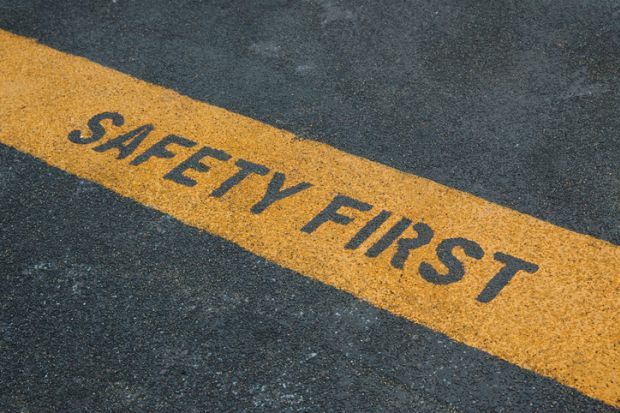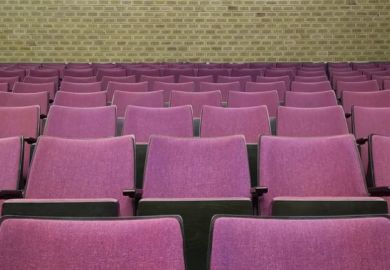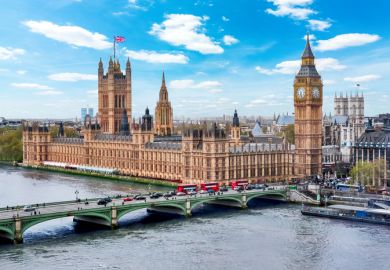More than a third of students would feel unsafe returning to face-to-face teaching on UK university campuses in September, according to a survey conducted by the National Union of Students.
The survey of 1,059 students found that 36 per cent of respondents said they would feel “not at all safe” if they were taught in class only, compared with 28 per cent who said they would feel “somewhat safe” and 17 per cent who said they would feel “fairly safe”. Only 7 per cent said they would feel “extremely safe”.
The NUS said two-fifths of international students said they would not feel safe at all with face-to-face teaching in September 2020.
Most UK universities have shifted to an online learning model since March, following the spread of the coronavirus pandemic.
The NUS survey found that, if full in-class teaching did not return until January 2021, only 13 per cent of those surveyed said they would feel unsafe and 22 per cent would feel extremely safe.
Students were less likely to say they would feel unsafe if teaching was a mix of online and in-person teaching in September 2020, with only 17 per cent saying they would not feel safe and 64 per cent saying they would feel either extremely, very or fairly safe to be taught by a blend of the two in September.
If taught by blended learning in January 2021, only 4 per cent said they would feel unsafe.
The NUS survey found that almost half – 47 per cent – expected to be taught online in the first term of the coming academic year, but in term two more students expected to be taught via blended learning – 59 per cent. By term three, 47 per cent expected to be taught in the classroom, compared with 14 per cent who expected to be taught online.
The survey also highlighted some apprehension about entering or returning to accommodation in September. Although just 7 per cent said they would feel not at all safe moving into accommodation, only 22 per cent said they would feel extremely safe moving into accommodation in September, compared with 43 per cent who would feel extremely safe moving in January.
In good news for universities, the survey found that three in four students intend to start or continue their studies as planned in the coming academic year.
Asked if they would change their plans if their institution introduced online lectures as part of their new or adapted offer, the majority said it was “not likely” to change their plans.
For example, 73 per cent said they were not likely to defer their start date or return for a year, compared with 12 per cent who were “somewhat likely” and 3 per cent who were “very likely”.
Likewise, 84 per cent were unlikely to change their institution as a result of online lectures, while 8 per cent were “somewhat likely” and 2 per cent were “very likely”.
Larissa Kennedy, the NUS president, said “student safety must be the priority for anyone making decisions as to how campuses are planning to reopen in September. The government must work with colleges and universities to provide clarity as to how they will keep students safe. These results make it clear that many students will be nervous about their return to education and need reassurances that institutions will be acting in their best interests.”
Universities must provide students with clarity about what they can expect from the next academic year, she continued, saying that “no university should be promising to put students back into classrooms too quickly as a marketing ploy to guarantee their income in an already failing higher education market”.
“Any attempt to bring students back into face-to-face teaching too early will undermine confidence in the university’s approach,” Ms Kennedy said. “Instead, students must be consulted with as part of this process, and it is crucial for universities to work with their students’ unions to facilitate the reopening of campuses, when it is safe to do so.”
Register to continue
Why register?
- Registration is free and only takes a moment
- Once registered, you can read 3 articles a month
- Sign up for our newsletter
Subscribe
Or subscribe for unlimited access to:
- Unlimited access to news, views, insights & reviews
- Digital editions
- Digital access to THE’s university and college rankings analysis
Already registered or a current subscriber?








